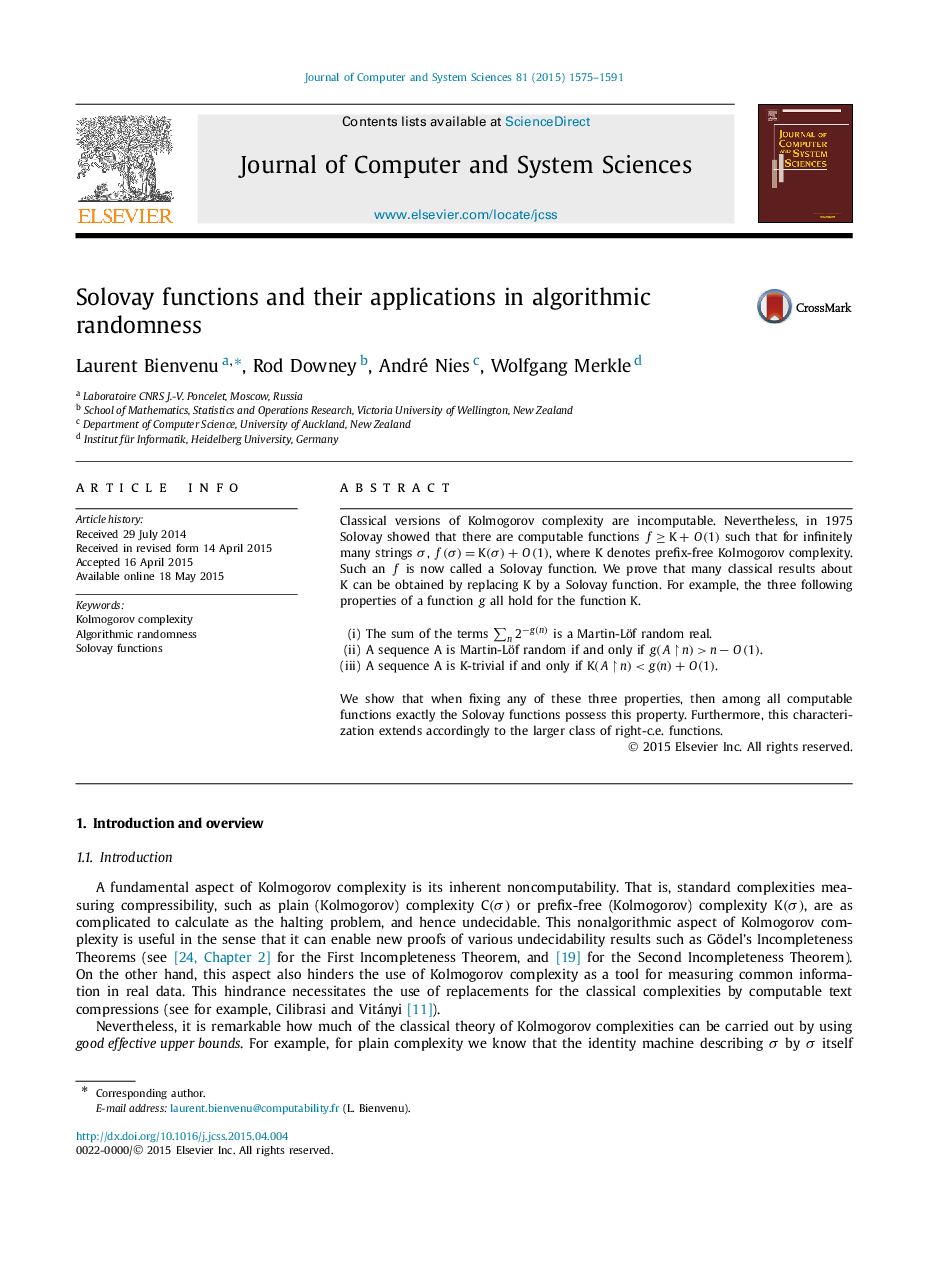| Article ID | Journal | Published Year | Pages | File Type |
|---|---|---|---|---|
| 429511 | Journal of Computer and System Sciences | 2015 | 17 Pages |
•We introduce the notion of Solovay function, as a type of ‘good approximation of Kolmogorov complexity’.•We show that most of the classical theory of algorithmic randomness can be rebuilt based on Solovay functions.•Likewise, we show that Solovay functions integrate nicely in the study of K-triviality.
Classical versions of Kolmogorov complexity are incomputable. Nevertheless, in 1975 Solovay showed that there are computable functions f≥K+O(1)f≥K+O(1) such that for infinitely many strings σ , f(σ)=K(σ)+O(1)f(σ)=K(σ)+O(1), where K denotes prefix-free Kolmogorov complexity. Such an f is now called a Solovay function. We prove that many classical results about K can be obtained by replacing K by a Solovay function. For example, the three following properties of a function g all hold for the function K.(i)The sum of the terms ∑n2−g(n)∑n2−g(n) is a Martin-Löf random real.(ii)A sequence A is Martin-Löf random if and only if g(A↾n)>n−O(1)g(A↾n)>n−O(1).(iii)A sequence A is K-trivial if and only if K(A↾n)
